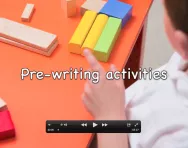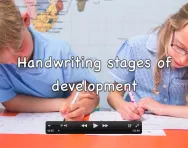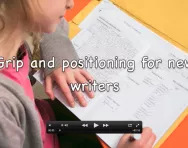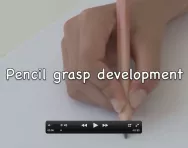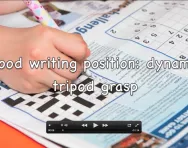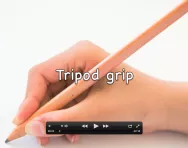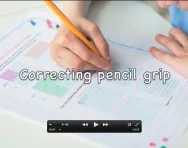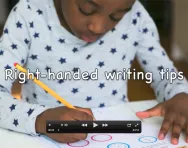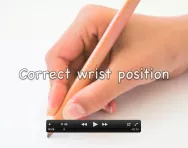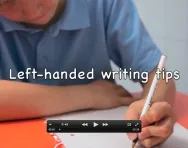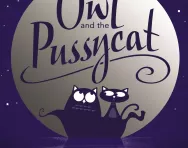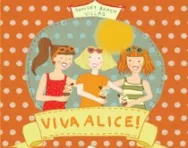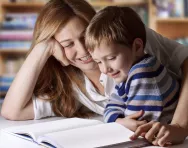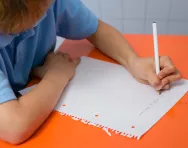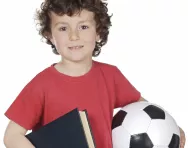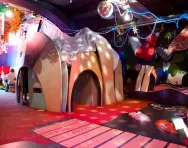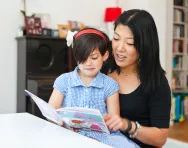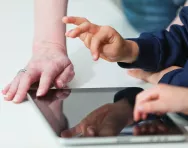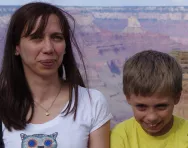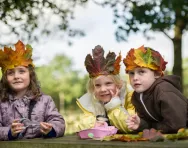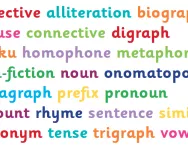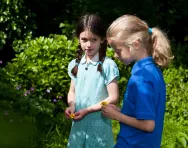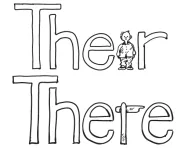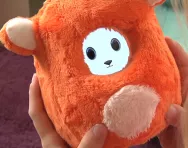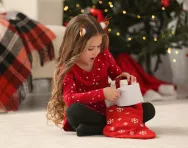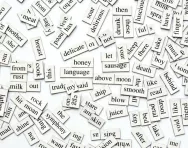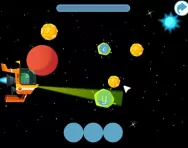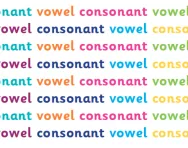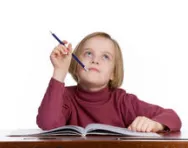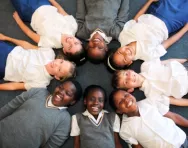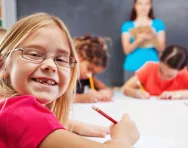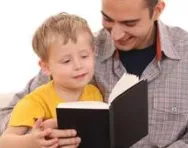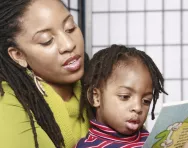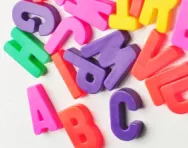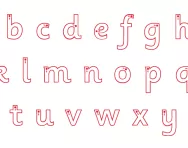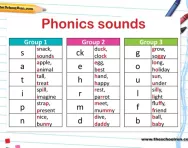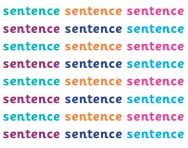Video: Pre-writing activities to support handwriting
Support your child's pre-handwriting development in nursery and Reception with fun activities and play, all designed to help build essential motor skills and hand muscles. Our video features experts from the National Handwriting Association, sharing practical ideas you can try at home.
Video: Handwriting development stages explained for parents
From anti-clockwise circles to letter formation, find out about your child's handwriting journey and how you can support them at home in TheSchoolRun's video, featuring experts from the National handwriting Association.
Video: correct handwriting grip and positioning for new writers
Help your child establish great handwriting habits from Reception and KS1 with our expert advice video for the parents of new writers. From the correct pencil grip to paper positioning and posture, the National Handwriting Association's Catherine Elsey explains what to look out for and how to make immediate improvements to help your child.
Video: Pencil grasp development
From eighteen months to five years, TheSchoolRun's handwriting video explains how children's pencil grasp changes over time, how to establish good handwriting habits early on and what to expect in every stage.
Video: The dynamic tripod grasp explained
Video advice and tips to help establish a good handwriting position, including details of the dynamic tripod grasp (the ideal hand position for writing) and why it's best for children to hold their pencil in this way when they're writing.
Video: The dynamic tripod grasp for better handwriting
Children who hold their pencil or pen in the ideal handwriting position, the dynamic tripod grip, can write comfortably for longer. The National Handwriting Association's Catherine Elsey explains how to help your child establish a confident tripod grip and how it helps avoid hand pain.
Video: Correcting pencil grip
Does your child struggle to hold their pencil correctly? Our handwriting tips video offers expert advice on correcting pencil grip and establishing the ideal dynamic tripod grasp, with tips from the National Handwriting Association.
Video: Right-handed handwriting tips and expert advice
Right-handed handwriting tips and advice from the experts, with practical examples of the best way to position paper correctly and hold the pencil with a tripod grasp. Experts from the National Handwriting Association feature in TheSchoolRun's new handwriting video series.
Video: Correct wrist position for handwriting
TheSchoolRun's new handwriting videos feature experts from the National Handwriting Association offering tips to help parents improve their children's handwriting. This video offers advice to help position the wrist correctly for fluid, comfortable handwriting.
Video: Left-handed handwriting tips and expert advice
Left-handed handwriting tips and advice from the experts, with practical examples of the best way to position paper correctly and how to hold your wrist in the optimal position for writing. TheSchoolRun's new handwriting videos feature experts from the National Handwriting Association.
7 classic poems to read with primary-school children
Poems come in all shapes and sizes. Some rhyme, some don't. Some are old, some are new. Introduce your child to a world of words to whisper, savour and inspire with some classic poems, chosen for primary-school children of all ages by poet Helen Mort, editor of The Owl and the Pussycat: An anthology of poems that every child should read. Enjoy!
14 of the best books for children for summer 2014
Make this summer a fiction-packed break with our pick of the best kids' books to read on the beach, by a lake, up a mountain, in a tent or just in your own back garden! From laugh-out-loud adventures to murder mysteries and junior chick lit, we've got great suggestions for every genre and every child.
4 ways to bring poetry to life for your child
With poetry on the new national curriculum for children as young as five, poet Adisa the Verbaliser explains how to make poetry magical for your child.
5 ways to turn your child into a budding writer
While some children love nothing more than sitting down with a blank sheet of paper and a pen, others are filled with dread at the thought of writing much more than their name at the top of their worksheet. Teacher and author Alison Wilcox shares her tips for encouraging the writing bug.
Best kids' books about football
Would your child rather be kicking a ball than picking up a book? Get them excited about reading with fiction and non-fiction titles about the beautiful game, from World Cup histories and step-by-step technique manuals to brilliant football fiction for all ages.
Museums reviewed by parents: Discover Children's Story Centre
Bring learning to life with a visit to one of our parent-recommended museums. We love Children's Story Centre Discover, a haven for bookworms, story-tellers and adventurers in Stratford, north east London.
Best reading scheme books for early readers
Does your heart sink at the thought of another reading practice session after school? Don't lose heart, says primary school teacher, mum and Reading Chest founder Liz Walker. Today's reading scheme books offer exciting stories, non-fiction facts and loads more. Here's how to make the most of early readers, whether your child has just started to blend sounds or is ready to graduate to 'real' books.
Why games-based learning is great for your child
If you despair of the amount of time your child spends attached to their tablet, think again: games and apps are an important part of their learning journey, from pre-school to secondary school, and can help to improve problem-solving skills and communication, as well as boost motivation. Lucy Dimbylow finds out why gaming means learning in the twenty-first century.
'He struggled to form his letters correctly and his handwriting was illegible'
Cécile Watson, from Bromley in Kent, describes her experience of the SEN and school system with her son Jean-Pierre, 11, who has dysgraphia, and shares her tips for other parents.
11 easy tips to make Shakespeare fun for kids
You don't have to be a theatre buff or a classic-literature lover to appreciate Shakespeare's wonderful stories, compelling characters and beautiful language. We say it's never too early to introduce children to the Bard, so here are 11 great ways to help under-12s fall in love with his verses.
What are exception words?
As your child learns to read you might hear them talk about the 'exception words' they are learning. We explain what exception words are, what role they play in phonics learning and how you can support your child's developing reading and spelling skills at home.
Primary literacy glossary for parents
From adjectives to writing frames, TheSchoolRun's primary-school literacy glossary offers a complete guide to all the concepts children are taught in EYFS, KS1 and KS2 English. Brush up on your own literacy skills, clear up homework confusion and understand exactly what your child is learning at school by reading our basic definitions (with links to more detailed explanations, teachers' tips and examples).
Blending sounds: teachers' tips
Struggling to help your child 'blend' sounds when they're reading aloud? Primary teacher Phoebe Doyle offers tips to help you support their phonics learning and early reading at home.
The parents’ guide to developmental language disorder
A significant percentage of children are thought to be affected by DLD, but it often goes unrecognised. We look at how to spot the signs and help your child.
Memory aids for kids
Rhymes, acrostics and other mnemonics could all help your child to remember important facts, from tricky spellings to grammar rules. We asked the experts why they work so well – and for their top 10 memory aids.
100 of the best educational toys: EYFS
Learning toys that are packed with play value, too, our 100 best educational toy picks will help your child identify numbers and letters, learn their high frequency words, understand rhyming and even get to grips with primary-school programming and physics. Get great gift ideas with our recommendations for nursery and Reception children!
100 of the best educational toys: stocking fillers
Don't forget the stockings! These little toys and games are the perfect size to slip in, yet still offer plenty of educational opportunity. Encourage observation, curiosity, dexterity and creativity with these brilliant gifts, whatever age your child is.
13 ways to make grammar fun for children
With all Year 6 children required to take a spelling, punctuation and grammar test and more emphasis on the technical side of English in the primary curriculum, we asked the experts for their top tips and practical activities to help your child engage with – and enjoy – grammar.
Best phonics learning tools
Want to practise phonics at home? We’ve picked some of the best games, apps, tools and books to help you reinforce what your child is learning at home – the fun way!
What are vowels and consonants?
We explain what vowels and consonants are and how primary-school children are taught to identify CVC, CCVC and CVCC words, vowel digraphs and consonant digraphs.
What is an explanation text?
An explanation text is a specific type of writing and includes some identifiable features. Find out how your child's teacher will teach explanation texts and what your child needs to include in their own explanation texts.
What is a non-chronological report?
A non-chronological report is a piece of text that isn't written in time order. Find out how your child is taught to read and write non-chronological reports in primary school.
What is brainstorming?
Children learn how to brainstorm in school to generate ideas and solve problems. Find out how teachers encourage children to develop this skill and how it can help improve your child's written work.
What is encoding?
Find out how your child will learn to encode – hear a sound and write it down – and what you can do at home to support learning.
What is decoding?
From the first years of school your child will learn to decode written words and say them aloud. Find out how teachers teach decoding and how you can support learning at home.
What is blending?
As they learn to read, children are taught individual sounds and then how to link them together to form words. By the end of Reception your child will be able to blend sounds together; find out how your child will be taught blending in school and how you can support learning at home.
What is a letter sound?
By the end of EYFS your child should know the sound each letter makes. Find out how your child will be taught letter sounds in school and how you can support learning at home.
What is a grapheme?
Your child will be taught about graphemes as part of their phonics learning journey. We explain what graphemes are and how you can help your child understand the concept at home.
What is phonics?
Sort your phonemes from your graphemes, decoding from encoding and digraphs from trigraphs with our parents' guide to phonics teaching. Our step-by-step explanation takes you through the different stages of phonics learning, what your child will be expected to learn and the vocabulary you need to know.
What is sentence level work?
Sentence level work is everything your child will be taught about grammar, text content and punctuation in the primary-school classroom. We offer some examples of activities to help them practise and improve their writing at home.
